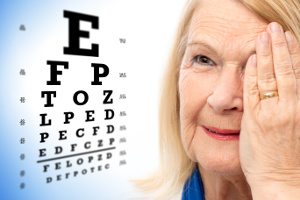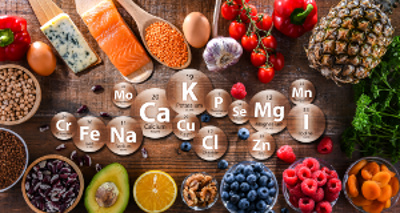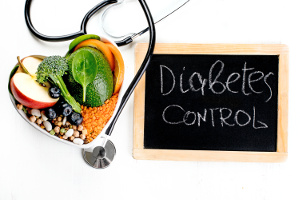| 1 x afterRenderRawModule mod_tags_popular (Search) (42.29KB) (25.25%) | 47.50ms |
| 1 x afterRenderRawModule mod_articles_category (READ MORE...) (7.23KB) (21.23%) | 39.94ms |
| 1 x afterRenderComponent com_tags (1.32MB) (17.15%) | 32.27ms |
| 1 x afterInitialise (1.28MB) (8.5%) | 15.99ms |
| 1 x afterRender (264.56KB) (2.99%) | 5.63ms |
| 1 x afterRenderRawModule mod_finder () (128.59KB) (2.93%) | 5.52ms |
| 1 x afterRoute (840.03KB) (2.58%) | 4.86ms |
| 1 x beforeRenderRawModule mod_articles_category (READ MORE...) (439.86KB) (2.57%) | 4.83ms |
| 1 x afterLoad (456.41KB) (2.33%) | 4.39ms |
| 1 x afterRenderRawModule mod_custom () (22.66KB) (1.92%) | 3.61ms |
| 1 x beforeRenderRawModule mod_custom (Chronic fatigue tied Alan to his bed but Q10 capsules saved him:) (244.28KB) (1.78%) | 3.34ms |
| 1 x afterRenderRawModule mod_menu (Main Menu - English) (186.95KB) (1.6%) | 3.01ms |
| 1 x afterRenderRawModule mod_menu (Main Menu - English) (6.3KB) (0.9%) | 1.69ms |
| 1 x afterRenderRawModule mod_languages (Sprogskift) (28.05KB) (0.82%) | 1.54ms |
| 1 x afterDispatch (27.45KB) (0.75%) | 1.41ms |
| 1 x beforeRenderModule mod_custom (Antiaging) (336B) (0.73%) | 1.38ms |
| 1 x beforeRenderModule mod_articles_category (READ MORE...) (20.82KB) (0.72%) | 1.35ms |
| 1 x afterRenderModule mod_menu (Main Menu - English) (4.86KB) (0.57%) | 1.06ms |
| 1 x afterRenderRawModule mod_languages (Sprogskift Mobil) (3.89KB) (0.49%) | 915μs |
| 1 x beforeRenderRawModule mod_menu (Main Menu - English) (29.14KB) (0.38%) | 713μs |
| 1 x After Access::preloadComponents (all components) (103.05KB) (0.34%) | 640μs |
| 1 x afterRenderRawModule mod_finder () (6.29KB) (0.32%) | 606μs |
| 1 x afterRenderRawModule mod_menu (Are you getting enough vitamins and minerals?) (22.39KB) (0.27%) | 500μs |
| 1 x Before Access::preloadComponents (all components) (50.9KB) (0.25%) | 474μs |
| 1 x beforeRenderComponent com_tags (20.62KB) (0.19%) | 360μs |
| 1 x afterRenderRawModule mod_menu (Did you know.....) (25.52KB) (0.15%) | 291μs |
| 1 x beforeRenderRawModule mod_custom () (8.66KB) (0.15%) | 279μs |
| 1 x afterRenderRawModule mod_menu (The key to increased well-being) (17.83KB) (0.14%) | 268μs |
| 1 x afterRenderRawModule mod_custom (BOOST YOUR IMMUNE DEFENSE) (3.8KB) (0.1%) | 188μs |
| 1 x afterRenderRawModule mod_custom () (896B) (0.09%) | 168μs |
| 1 x afterRenderRawModule mod_custom () (904B) (0.08%) | 159μs |
| 1 x beforeRenderRawModule mod_custom () (6.62KB) (0.07%) | 141μs |
| 1 x beforeRenderRawModule mod_custom () (688B) (0.07%) | 126μs |
| 1 x beforeRenderRawModule mod_menu (Main Menu - English) (5.07KB) (0.06%) | 113μs |
| 1 x afterRenderModule mod_menu (Main Menu - English) (1.25KB) (0.04%) | 78μs |
| 1 x afterRenderModule mod_languages (Sprogskift Mobil) (1.27KB) (0.04%) | 69μs |
| 1 x afterRenderModule mod_custom (Chronic fatigue tied Alan to his bed but Q10 capsules saved him:) (1.3KB) (0.03%) | 62μs |
| 1 x After Access::getAssetRules (id:8 name:com_content) (7.05KB) (0.03%) | 57μs |
| 1 x afterRenderModule mod_custom () (1.23KB) (0.03%) | 52μs |
| 1 x afterRenderRawModule mod_custom (Get additionel and more detailed knowledge ) (1.55KB) (0.03%) | 50μs |
| 1 x afterRenderModule mod_finder () (1.23KB) (0.03%) | 50μs |
| 1 x afterRenderModule mod_articles_category (READ MORE...) (1.25KB) (0.02%) | 45μs |
| 1 x afterRenderModule mod_menu (Are you getting enough vitamins and minerals?) (1.3KB) (0.02%) | 43μs |
| 1 x afterRenderRawModule mod_custom (Chronic fatigue tied Alan to his bed but Q10 capsules saved him:) (1.06KB) (0.02%) | 43μs |
| 1 x beforeRenderRawModule mod_custom (Get additionel and more detailed knowledge ) (816B) (0.02%) | 39μs |
| 1 x afterRenderModule mod_custom (Antiaging) (3.77KB) (0.02%) | 38μs |
| 1 x afterRenderModule mod_custom () (2.43KB) (0.02%) | 38μs |
| 1 x afterRenderModule mod_finder () (3.29KB) (0.02%) | 33μs |
| 1 x afterRenderRawModule mod_custom (Useful Links) (1.02KB) (0.02%) | 31μs |
| 1 x afterRenderModule mod_custom (Cholesterol-lowering without side effects:) (1.28KB) (0.02%) | 31μs |
| 1 x beforeRenderRawModule mod_custom (BOOST YOUR IMMUNE DEFENSE) (6.45KB) (0.02%) | 29μs |
| 1 x afterRenderModule mod_custom (BOOST YOUR IMMUNE DEFENSE) (1.28KB) (0.01%) | 27μs |
| 1 x afterRenderModule mod_custom () (2.71KB) (0.01%) | 25μs |
| 1 x afterRenderRawModule mod_custom (Overview of vitamins, minerals, and essential fatty acids) (960B) (0.01%) | 23μs |
| 1 x afterRenderModule mod_tags_popular (Search) (1.27KB) (0.01%) | 23μs |
| 1 x afterRenderModule mod_custom (Overview of vitamins, minerals, and essential fatty acids) (1.31KB) (0.01%) | 23μs |
| 1 x afterRenderRawModule mod_custom (Cholesterol-lowering without side effects:) (1.06KB) (0.01%) | 23μs |
| 1 x afterRenderModule mod_menu (The key to increased well-being) (1.28KB) (0.01%) | 23μs |
| 1 x afterRenderModule mod_custom (Q10 goes by many names) (1.27KB) (0.01%) | 22μs |
| 1 x afterRenderModule mod_custom (Get additionel and more detailed knowledge ) (1.3KB) (0.01%) | 21μs |
| 1 x afterRenderModule mod_custom (Are you taking supplements) (1.28KB) (0.01%) | 21μs |
| 1 x afterRenderModule mod_menu (Did you know.....) (1.27KB) (0.01%) | 21μs |
| 1 x afterRenderModule mod_custom (Useful Links) (1.27KB) (0.01%) | 21μs |
| 1 x beforeRenderRawModule mod_languages (Sprogskift) (3.94KB) (0.01%) | 21μs |
| 1 x beforeRenderRawModule mod_languages (Sprogskift Mobil) (912B) (0.01%) | 21μs |
| 1 x afterRenderModule mod_custom (Check this before you buy a Q10 product) (1.28KB) (0.01%) | 20μs |
| 1 x afterRenderModule mod_custom (Weight loss that works) (1.27KB) (0.01%) | 20μs |
| 1 x afterRenderModule mod_languages (Sprogskift) (5.31KB) (0.01%) | 20μs |
| 1 x afterRenderRawModule mod_custom (Q10 goes by many names) (928B) (0.01%) | 19μs |
| 1 x afterRenderRawModule mod_custom (Are you taking supplements) (1.03KB) (0.01%) | 18μs |
| 1 x afterRenderRawModule mod_custom (Weight loss that works) (1.03KB) (0.01%) | 18μs |
| 1 x beforeRenderRawModule mod_menu (Did you know.....) (720B) (0.01%) | 18μs |
| 1 x afterRenderRawModule mod_custom (Check this before you buy a Q10 product) (944B) (0.01%) | 18μs |
| 1 x afterRenderRawModule mod_custom (Antiaging) (912B) (0.01%) | 17μs |
| 1 x Before Access::getAssetRules (id:8 name:com_content) (840B) (0.01%) | 16μs |
| 1 x beforeRenderRawModule mod_menu (The key to increased well-being) (736B) (0.01%) | 16μs |
| 1 x beforeRenderRawModule mod_tags_popular (Search) (2.36KB) (0.01%) | 15μs |
| 1 x beforeRenderRawModule mod_custom (Useful Links) (1.06KB) (0.01%) | 14μs |
| 1 x beforeRenderModule mod_custom (BOOST YOUR IMMUNE DEFENSE) (6.81KB) (0.01%) | 14μs |
| 1 x beforeRenderModule mod_menu (Are you getting enough vitamins and minerals?) (2.13KB) (0.01%) | 14μs |
| 1 x beforeRenderRawModule mod_custom (Cholesterol-lowering without side effects:) (368B) (0.01%) | 13μs |
| 1 x beforeRenderRawModule mod_menu (Are you getting enough vitamins and minerals?) (2.5KB) (0.01%) | 12μs |
| 1 x beforeRenderModule mod_tags_popular (Search) (1.98KB) (0.01%) | 12μs |
| 1 x beforeRenderModule mod_menu (The key to increased well-being) (352B) (0.01%) | 12μs |
| 1 x beforeRenderRawModule mod_finder () (2.3KB) (0.01%) | 12μs |
| 3 x beforeRenderModule mod_custom () (704B) (0.01%) | 12μs |
| 1 x beforeRenderRawModule mod_custom (Overview of vitamins, minerals, and essential fatty acids) (768B) (0.01%) | 11μs |
| 1 x beforeRenderRawModule mod_finder () (6.34KB) (0.01%) | 11μs |
| 1 x beforeRenderModule mod_custom (Get additionel and more detailed knowledge ) (1.17KB) (0.01%) | 10μs |
| 1 x beforeRenderModule mod_menu (Did you know.....) (336B) (0.01%) | 10μs |
| 1 x beforeRenderModule mod_custom (Useful Links) (1.44KB) (0.01%) | 10μs |
| 2 x beforeRenderModule mod_finder () (704B) (0.01%) | 10μs |
| 1 x beforeRenderRawModule mod_custom (Check this before you buy a Q10 product) (752B) (0%) | 9μs |
| 1 x beforeRenderRawModule mod_custom (Are you taking supplements) (736B) (0%) | 9μs |
| 1 x beforeRenderModule mod_custom (Are you taking supplements) (352B) (0%) | 9μs |
| 1 x beforeRenderModule mod_custom (Weight loss that works) (336B) (0%) | 9μs |
| 2 x beforeRenderModule mod_menu (Main Menu - English) (720B) (0%) | 9μs |
| 1 x beforeRenderRawModule mod_custom (Q10 goes by many names) (608B) (0%) | 9μs |
| 1 x beforeRenderModule mod_custom (Overview of vitamins, minerals, and essential fatty acids) (384B) (0%) | 9μs |
| 1 x beforeRenderModule mod_custom (Check this before you buy a Q10 product) (352B) (0%) | 9μs |
| 1 x beforeRenderRawModule mod_custom (Weight loss that works) (736B) (0%) | 8μs |
| 1 x beforeRenderRawModule mod_custom (Antiaging) (720B) (0%) | 8μs |
| 1 x beforeRenderModule mod_custom (Q10 goes by many names) (208B) (0%) | 8μs |
| 1 x beforeRenderModule mod_languages (Sprogskift) (720B) (0%) | 6μs |
| 1 x beforeRenderModule mod_languages (Sprogskift Mobil) (720B) (0%) | 6μs |
| 1 x beforeRenderModule mod_custom (Chronic fatigue tied Alan to his bed but Q10 capsules saved him:) (768B) (0%) | 4μs |
| 1 x beforeRenderModule mod_custom (Cholesterol-lowering without side effects:) (752B) (0%) | 2μs |
 The number of older people is constantly increasing, and more and more people suffer from Alzheimer’s disease and other types of dementia. Apparently, seniors who take a daily multivitamin can improve their memory and slow down their cognitive decline, according to a meta-analysis that is published in Journal of Clinical Nutrition. Older people generally have increased need for certain vitamins and minerals because of poor nutrient absorption in the digestive system, impaired enzyme functions, oxidative stress, and regular use of medical drugs that can interact with the nutrients. But how do different vitamins and minerals affect brain health?
The number of older people is constantly increasing, and more and more people suffer from Alzheimer’s disease and other types of dementia. Apparently, seniors who take a daily multivitamin can improve their memory and slow down their cognitive decline, according to a meta-analysis that is published in Journal of Clinical Nutrition. Older people generally have increased need for certain vitamins and minerals because of poor nutrient absorption in the digestive system, impaired enzyme functions, oxidative stress, and regular use of medical drugs that can interact with the nutrients. But how do different vitamins and minerals affect brain health?







 Weight-challenged children and teenagers have grown to become a global health threat, and the problem became even worse during the corona pandemic. Overweight is linked to a number of health problems, including non-alcoholic fatty liver disease that sets the stage for type 2 diabetes and other serious ailments. In a new review article that is published in Nutrients, researchers look closer at how a carbohydrate-restricted diet or the traditional Mediterranean diet can help to counteract the development of overweight and non-alcoholic fatty liver disease. Also, supplementation with vitamin E, vitamin D, fish oil, and probiotics can block the development of non-alcoholic fatty liver via different metabolic parameters.
Weight-challenged children and teenagers have grown to become a global health threat, and the problem became even worse during the corona pandemic. Overweight is linked to a number of health problems, including non-alcoholic fatty liver disease that sets the stage for type 2 diabetes and other serious ailments. In a new review article that is published in Nutrients, researchers look closer at how a carbohydrate-restricted diet or the traditional Mediterranean diet can help to counteract the development of overweight and non-alcoholic fatty liver disease. Also, supplementation with vitamin E, vitamin D, fish oil, and probiotics can block the development of non-alcoholic fatty liver via different metabolic parameters.
 There are several possible causes of male impotence, and the risk increases with age. Oxidative stress appears to play a role, as this condition contributes to local atherosclerosis, which restricts blood flow to the penis. However, consuming a variety of antioxidants - such as
There are several possible causes of male impotence, and the risk increases with age. Oxidative stress appears to play a role, as this condition contributes to local atherosclerosis, which restricts blood flow to the penis. However, consuming a variety of antioxidants - such as  The condition of our skin means a lot to our appearance and health, and being deficient in one or several nutrients can cause premature skin ageing. Also, things like poor wound healing, acne, herpes infections, yeast infections, eczema, psoriasis, and other skin disorders may occur. In a review article published in Medicina, scientists have looked at the role of vitamins A, C, E, D, and biotin plus omega-3 fatty acids in skin health. Studies suggest that selenium and zinc may also be important for healthy skin and anti-ageing. If you don’t get enough of these nutrients or if you simply have an increased need for them, you may consider taking a supplement.
The condition of our skin means a lot to our appearance and health, and being deficient in one or several nutrients can cause premature skin ageing. Also, things like poor wound healing, acne, herpes infections, yeast infections, eczema, psoriasis, and other skin disorders may occur. In a review article published in Medicina, scientists have looked at the role of vitamins A, C, E, D, and biotin plus omega-3 fatty acids in skin health. Studies suggest that selenium and zinc may also be important for healthy skin and anti-ageing. If you don’t get enough of these nutrients or if you simply have an increased need for them, you may consider taking a supplement.

 "After about one week of taking the Q10 supplement I could feel a huge difference," says 23-year old Alan Piccini, who has been suffering from extreme fatigue and muscle aches ever since he was a child.
"After about one week of taking the Q10 supplement I could feel a huge difference," says 23-year old Alan Piccini, who has been suffering from extreme fatigue and muscle aches ever since he was a child. “Taking capsules with co-enzyme Q10 has freed me of the severe side effects of my cholesterol lowering medicine,” Mrs Franken explains.
“Taking capsules with co-enzyme Q10 has freed me of the severe side effects of my cholesterol lowering medicine,” Mrs Franken explains.